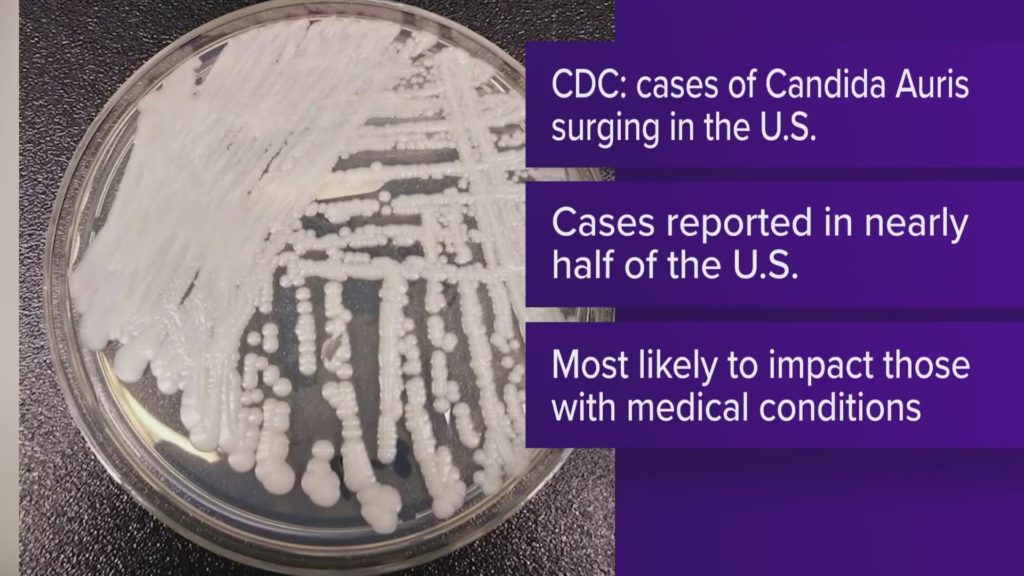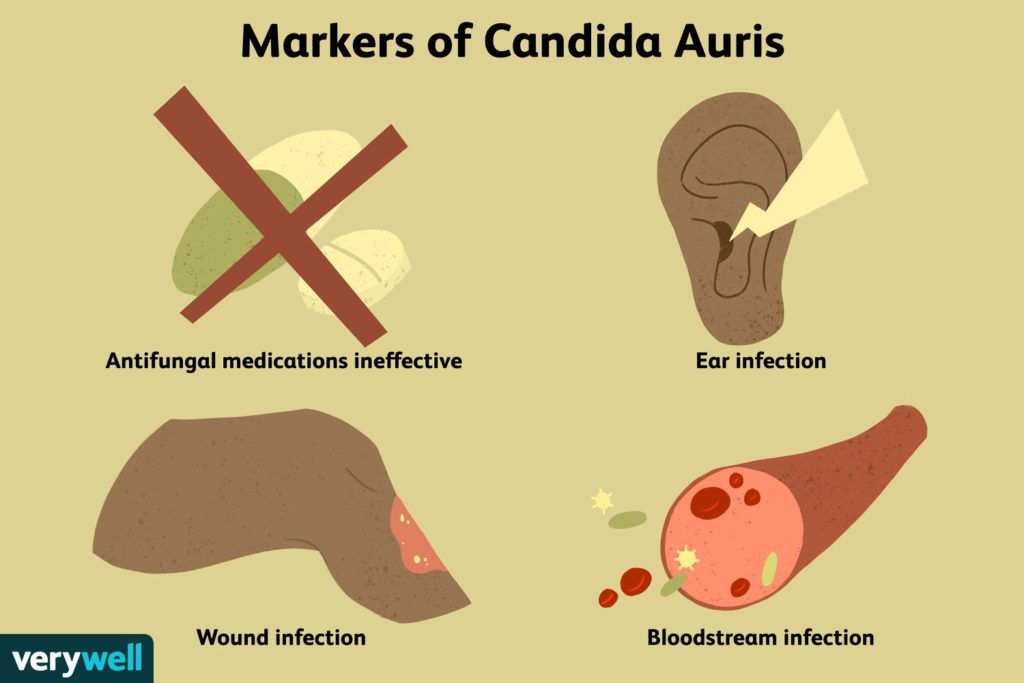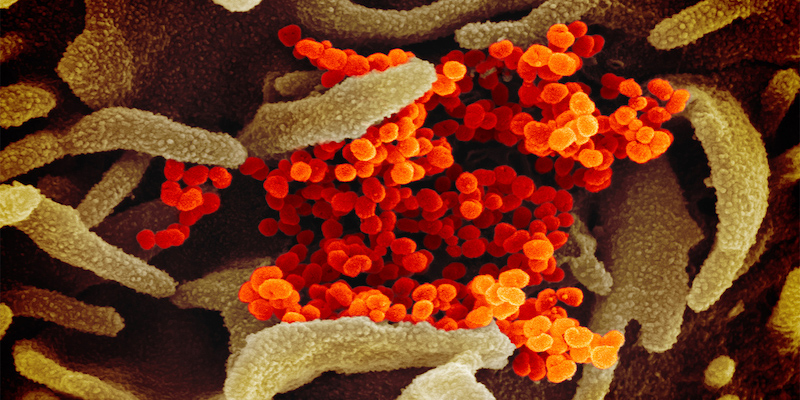If you’ve always wondered about the origin of COVID, then wonder no more.
Health News :
We’ve all heard the rumors that the coronavirus started with monkeys, came from bats, originated in bushmeat markets, leaked from a Wuhan lab in China, or was purposely created as a means of biological warfare. However, scientists now say they believe they have the definitive answer regarding the true origin of COVID.

According to The New York Times, an international team of virus experts said they found genetic data from a market in Wuhan, China, linking the coronavirus with raccoon dogs that were for sale in the Asian nation via the illegal wildlife trade.
Genetic data was drawn from swabs taken from the Huanan Seafood Wholesale Market back in January 2020, which was shortly after Chinese authorities shut down the market due to suspicions that it was linked to the new virus. A large number of the genetic samples later came back positive for COVID-19 and were a match for the raccoon dog.
Three scientists involved in the analysis were quick to point out that their study does not prove that a raccoon dog itself was infected. Another animal could have passed the virus to people, or someone infected with the virus could have spread the virus to a raccoon dog. Still, they made clear that raccoon dogs (fluffy animals that are related to foxes) are known to be able to transmit the coronavirus.
The findings showed that “the samples from the market that had early Covid lineages in them were contaminated with DNA reads of wild animals,” said Jeremy Kamil, a virologist at Louisiana State University Health Sciences Center Shreveport who was not involved in the study. Dr. Kamil added that although the new finding on the origin of COVID fell short of conclusive evidence that an infected animal had set off the pandemic, “it really puts the spotlight on the illegal animal trade in an intimate way.”
Meanwhile, just as the world has been getting back to normal life post-COVID, a new health horror is on the horizon.

According to NBC News, a new drug-resistant and potentially deadly fungus has been spreading rapidly through US healthcare facilities. The fungus is a type of yeast called Candida auris (or C. auris) and can cause severe illness in people with weakened immune systems.
To date, 28 states have been affected, but 6 states have seen cases hit the triple digits in the last 12 months. They include:
- Nevada: 384 cases
- California: 359 cases
- Florida: 349 cases
- New York: 326 cases
- Illinois: 276 cases
- Texas: 160 cases
Candida auris can cause multiple infections, including bloodstream infections, wound infections, and ear infections. People who are most at risk for contracting the new fungus include those who have spent time in nursing homes as well as those who have lines and tubes connected to their body, such as feeding or breathing tubes.
The most common symptoms of invasive Candida infection are fever and chills that don’t improve after antibiotic treatment for a suspected bacterial infection. Only a lab test can diagnose the condition.

Again, the new fungus is deadly and drug-resistant, meaning standard antibiotics are rarely helpful. Or in other words, so far, there is no cure.
Just when we thought things were back to normal and that COVID-19 was manageable, now comes this latest risk.
Be careful!
OK WASSUP! discusses Health News:
The origin of COVID and a new fungus.







CBS News:
The Centers for Disease Control and Prevention says it is tracking a rise in stomach illnesses caused by infections with “extensively drug-resistant” bacteria that leave doctors with few antibiotic options to treat patients. The CDC warns it now poses a “serious public health threat.”
Over the past few years, the CDC says there are signs the percentage of Shigella bacteria cases that are resistant to a broad swath of antibiotics has begun to climb steeply around the country. These strains can also spread their resistance genes to other stomach bugs.
Analyses of these bacteria, dubbed XDR Shigella, have shown resistance to all of the typically recommended frontline antibiotic treatments for bacteria: azithromycin, ciprofloxacin, ceftriaxone, trimethoprim-sulfamethoxazole, and ampicillin.
Outbreaks of Shigella bacteria often spread through contaminated food and water, via surfaces, or through sex. Symptoms of the disease it causes, a form of dysentery named shigellosis, include fever and diarrhea.
Wil, thanks for sharing this!
A few people that I know, (family and friends) were hit with a particularly nasty stomach bug over the past month. I told them I thought it was a new and stronger stomach virus.
Looks like I may have been right.
I am sorry to hear about this Truth. How is your family and friends doing now?
I’m happy to say that they’ve all fully recovered and doing well now BD.
Thank you for asking!
So now we have this hospital fungus plus shigella that has no medicine to treat it. The way we are going just living will kill you.
If I may modify your statement just a little BD so that it reads:
The way we are living, just living will kill you!
I had heard something about the raccoon dogs about a week ago. I hope this does not come off the wrong way but they eat a lot of crazy stuff at those meat markets in China. I would not be surprised if more disease comes out of there.
BD, I said darn near the same thing to my people!
I said, don’t be surprised if we don’t get hit with stronger viruses and even more deadly viruses.
I don’t live my life in a state of fear and panic. But I am more mindful of trying to take better care of myself. To protect myself.
And of course I Pray!
I had early an morning meeting this morning and unfortunately ran short of time to respond to DJ actual post. But I’m back now.
Unfortunately, like 9/11, I don’t think we’ll ever really know the truth, the whole truth and nothing but the truth about the origin of Covid. The People who know are either dead or ain’t talking!